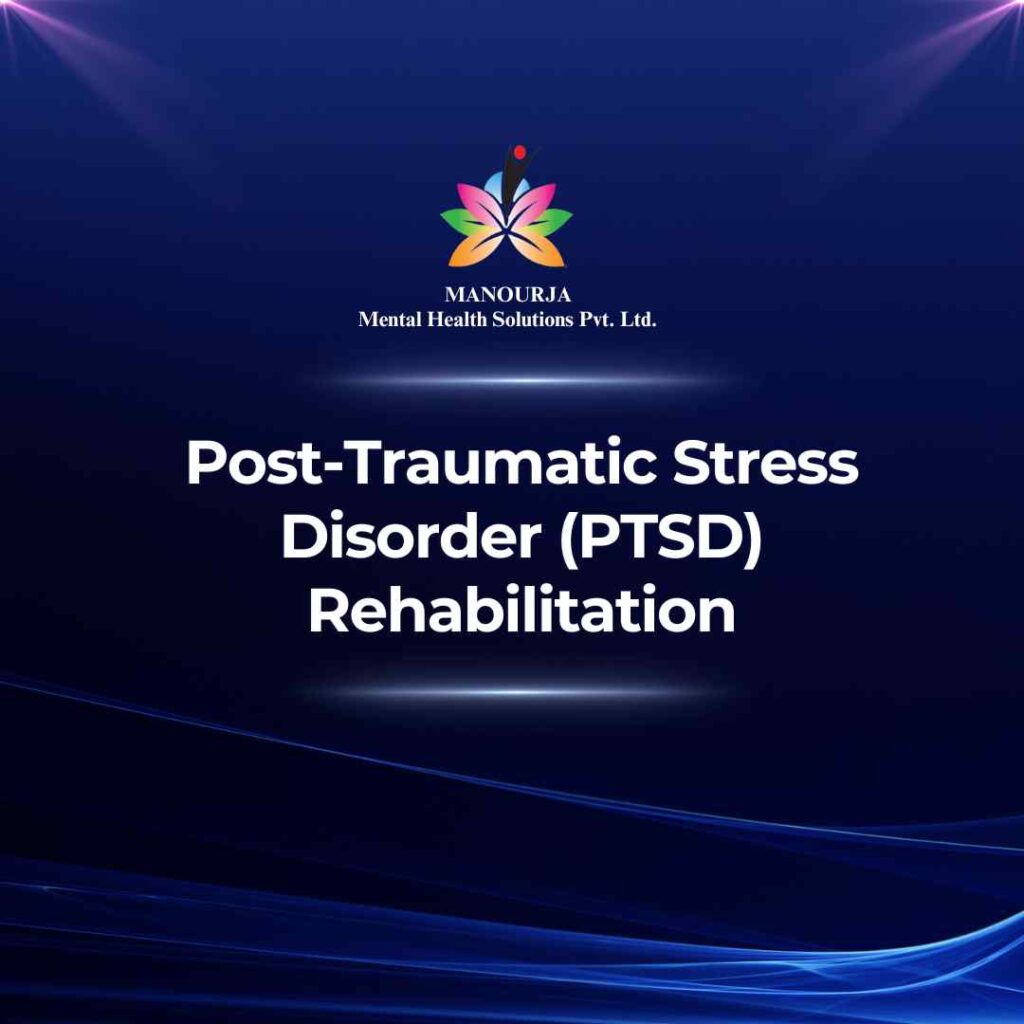Post-Traumatic Stress Disorder (PTSD) Rehabilitation

Post-Traumatic Stress Disorder (PTSD) is a serious condition that can develop after a person has experienced or witnessed a traumatic event. Recognizing the signs and symptoms of PTSD is crucial for timely intervention, which can significantly enhance recovery prospects. Understanding the appropriateness of outpatient (OPD) versus inpatient (IPD) psychosocial rehabilitation is also essential for effective treatment planning.
Signs and Symptoms of PTSD
Family members and individuals should be aware of these key symptoms that may indicate PTSD:
- Re-experiencing the Trauma: This includes intrusive thoughts, nightmares, and flashbacks of the traumatic event.
- Avoidance: Actively avoiding people, places, or activities that remind them of the trauma, leading to social isolation.
- Negative Changes in Thinking and Mood: Feelings of hopelessness, memory problems, and negative thoughts about oneself or the world.
- Increased Arousal and Reactivity: This might manifest as being easily startled, feeling tense, having difficulty sleeping, and exhibiting irritable or aggressive behavior.
Factors Influencing the Decision Between OPD and IPD
- Severity of Symptoms: More severe cases, especially those involving suicidal ideation or poor psychosocial functioning, may require IPD to ensure safety and intensive care.
- Risk of Harm: If there is a significant risk of self-harm or harm to others, IPD offers a controlled environment for closer monitoring and more structured support.
- Support Systems: Availability of strong support at home might make OPD feasible, allowing the individual to maintain some aspects of their daily routine.
- Stability of Living Situation: A stable and secure living situation is critical for OPD; instability might necessitate IPD.
Role of Psycho-social Rehabilitation in Treating PTSD
Psycho-social rehabilitation focuses on improving an individual’s ability to function in social, professional, and family settings and to manage symptoms effectively by:
- Enhancing Coping Strategies: Training in stress management techniques and coping mechanisms to handle symptoms.
- Social Skills Training: Helping individuals improve interpersonal skills, fostering better relationships and community reintegration.
- Vocational Rehabilitation: Assisting with employment readiness and adaptation, which is often disrupted in those suffering from PTSD.
Techniques and Approaches Used at MANOURJA
At MANOURJA, several scientifically-backed techniques and approaches are employed to support individuals with PTSD:
- Cognitive Behavioral Therapy (CBT): Particularly effective for PTSD, CBT helps individuals reframe negative thinking patterns related to the trauma.
- Prolonged Exposure Therapy: Involves carefully and repeatedly exposing patients to trauma-related cues until they no longer trigger anxiety.
- Eye Movement Desensitization and Reprocessing (EMDR): Helps process and integrate traumatic memories to reduce the distress they cause.
- Group Therapy: Offers a space for shared experiences and mutual support, which is particularly beneficial in normalizing symptoms and reducing stigma.
Steps in the Rehabilitation Process at MANOURJA
- Initial Comprehensive Assessment: Evaluating the individual’s trauma history and symptoms to tailor the treatment.
- Treatment Planning: Developing a personalized plan that addresses the unique challenges and goals of the individual.
- Implementation of Treatment: Executing planned therapeutic activities and regular counseling sessions.
- Regular Monitoring and Adjustment: Continuously assessing the effectiveness of the treatment and making necessary adjustments.
- Support and Aftercare: Providing ongoing support, including relapse prevention strategies and coping skills development.
By integrating these specialized interventions and supports, MANOURJA’s approach to psychosocial rehabilitation for PTSD not only aims to alleviate symptoms but also empowers individuals to regain control and improve their quality of life.
“Recovery is not a straight line, but each step forward is a step towards reclaiming your life from PTSD.”
